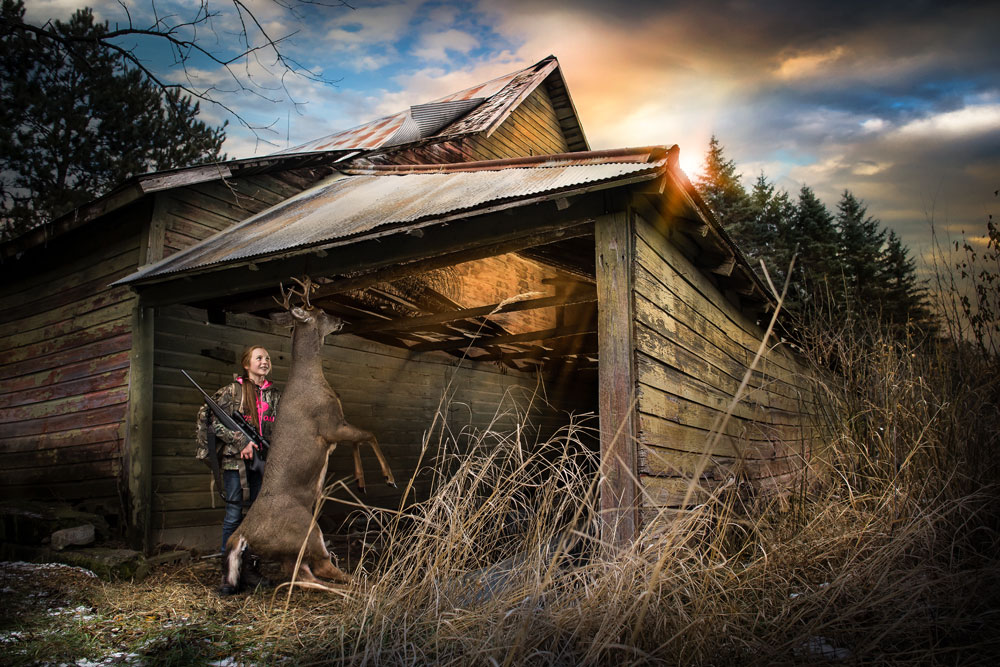Brian McCombie
By an overwhelming majority, the United States Senate recently passed Great American Outdoors Act (S. 3422) on a strong bipartisan vote of 73-25. The Act represents a huge commitment to increasing public access for America’s anglers, hunters, and other recreationists, and will continue to advance wildlife conservation in this country.

According to the Congressional Sportsmen’s Foundation (CSF):
“The Great American Outdoors Act will provide $9.5 billion over 5 years to address the crumbling infrastructure on America's public lands and waters. While the National Park Service will receive $6.5 billion in funding, the CSF led a successful effort to secure the inclusion of $3 billion to repair and maintain public land infrastructure overseen by the Bureau of Land Management, U.S. Fish and Wildlife Service, and U.S. Forest Service, which provides critically important recreational opportunities for America's sportsmen and women.”
Said CSF President Jeff Crane, "When signed into law, this bill will provide much needed support for public lands and waters and boost the already formidable outdoor economy. CSF extends our sincere thanks to the Senate Congressional Sportsmen's Caucus members that voted to support these priorities."
Including funding in the Act specifically for work on the above-mentioned federal lands was a key focus of CSF and numerous conservation organizations. This funding for federally managed lands and waters will ensure that Americans have the ability to access critically important hunting, fishing, and recreational shooting opportunities.
For example, over 246 million acres or 99-percent of Bureau of Land Management properties are open to hunting and fishing. The Forest Service reports that 99-percent of the 193 million acres it administers are open to hunting, with the same percentage of its rivers, streams, and lakes open to fishing.
Taken all together, the lands administered by these federal agencies annually support more than 25 million hunting days and nearly 45 million fishing days, according to CSF. Additionally, funding for the maintenance backlog will create over 100,000 employment opportunities.

“The National Wild Turkey Federation (NWTF) was instrumental in ensuring our National Forests, which were not eligible in the original bill, were included and will receive 15% of the annual deposits,” said Joel Pedersen, NWTF’s Director of Government Affairs. “This could mean up to $285 million annually for improving infrastructure on national forests.”
“Easy access to the outdoors is important to the health and spirit of Americans, and this action will allow improvements to roads and other points of access,” added NWTF CEO Becky Humphries. “Ensuring permanent backing by Congress and providing dedicated funding to ease the backlog of much-needed infrastructure improvements is a bright light in an otherwise dark time in our history.”
Ducks Unlimited (DU) was another important voice in support of the Act.
“A surge in visitors to America’s public lands through the years has led to an accumulation of wear and tear,” said DU CEO Adam Putnam. “Especially in these difficult times, many have sought refuge and recreation on our nation’s extraordinary natural landscapes. The Great American Outdoors Act will enable Americans to continue enjoying the great outdoors by ensuring our public lands are a safe and suitable place for all varieties of responsible recreation.”
As Putnam noted, the Great American Outdoors Act also provides full and permanent funding for the Land and Water Conservation Fund (LWCF) at $900 million annually. LWCF is one of the most successful and influential conservation programs in our nation's history. As a testament to the impact of LWCF, the program has completed a conservation, recreation, or access project in every single county in the country. S. 3422 also secures $15 million annually to increase public access for hunting, fishing, recreational shooting, and other forms of outdoor recreation.
Having passed the Senate, the Great American Outdoors Act is now being considered in the House of Representatives, where it appears to have solid bi-partisan support.



























